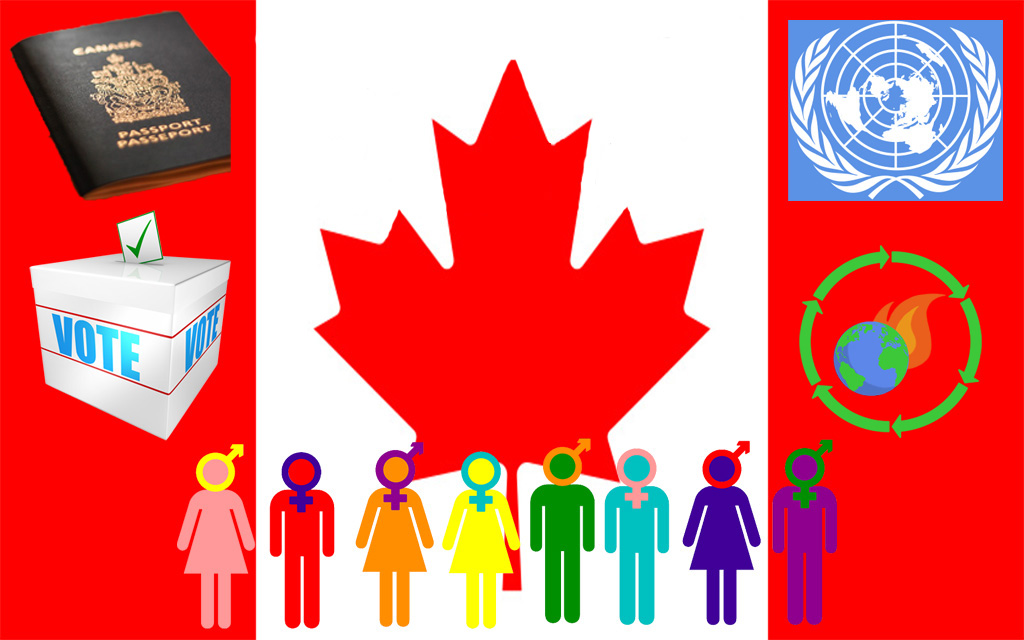Let’s first respectfully acknowledge that St. Thomas University, and The Aquinian are situated on the traditional, unceeded Territory of the Maliseet/Wəlastəkwiyik peoples. A disclaimer to readers, that I am a white man with no Indigenous heritage. The purpose of this article is to give you an overview of what the federal parties are promising to do regarding Indigenous issues, if elected. I sincerely hope this article helps you make your decision this election, with truth and reconciliation in mind.
On Oct. 4, 2019, the Attorney General of Canada, David Lametti, filed an application with the federal court for a judicial review and stay (essentially appealing a decision to go to court and pause) the ruling by The Canadian Human Rights Tribunal. The ruling found that the federal government had discriminated against First Nations children by underfunding on-reserve child welfare services. The ruling ordered the government in September to compensate all First Nation children who were removed from their homes and communities through the child welfare system since Jan. 1, 2006.
This decision by the current government to seek a judicial review and stay of the CHRT ruling garnered criticism from the Green Party of Canada, and the New Democratic Party of Canada in particular. Both parties say they would pay the estimated $7 to $8 billion compensation in full. Andrew Scheer has stated that he would have sought a judicial review of the tribunal’s decision, like the current government under Justin Trudeau.
We are in a moment of Canada’s history where we will either fully and truly reconcile with Indigenous peoples, or we will not. Let’s look at what the various parties are vowing to do about the serious issues Indigenous peoples face across the country.
Andrew Scheer, leader of the Conservative Party of Canada has said in the recent televised that they would be eager to work with indigenous communities on various energy projects, namely the building and expansion of pipelines.
Justin Trudeau’s Liberals said they will continue to act on their promises from 2015 to improve services for First Nations. They also seek to include Indigenous peoples in local projects and support Indigenous entrepreneurs. In pursuing the path to reconciliation, the Liberals say they “need to continue to move forward, to a place where Indigenous Peoples in Canada are in control of their own destiny, making their own decisions about their future.” They also promise to advance the “priorities identified by First Nations”. They say they’ll do the same for Inuit peoples as well as the Métis Nation.
The Green Party and their leader Elizabeth May vow to “honour treaties and respect [the] United Nations Declaration on the Rights of Indigenous Peoples”. In short, the UNDRIP “establishes a universal framework of minimum standards for the survival, dignity and well-being of the indigenous peoples of the world and it elaborates on existing human rights standards and fundamental freedoms as they apply to the specific situation of indigenous peoples.” They will also “make Indigenous nations equal partners in setting national policy priorities”. The Green Party promises to “fully implement the Truth and Reconciliation Commission & [the] Missing and Murdered Indigenous Women and Girls report”. They also seek to “develop a national strategy for housing, clean water, food security and healthcare” for Indigenous peoples.
The People’s Party of Canada, led by Maxime Bernier, promise to look for ways to replace the Indian Act with “a new legal framework that guarantees equal rights and responsibilities to aboriginal people as Canadians”. They also believe that pipelines present Aboriginal peoples with opportunities for economic benefits. The PPC will look to “promote the establishment of individual property rights on reserves” as well.
The New Democratic Party of Canada with Jagmeet Singh at the helm, wish to develop an action plan for reconciliation and fully implement the United Nations Declaration on the Rights of Indigenous Peoples. They also promise to improve housing for Indigenous peoples. The NDP state that they will increase post-secondary funding for Indigenous students. The NDP promise to fully implement all recommendations from the MMIWG inquiry and lift all drinking water advisories by 2021. They also promise to implement all the Truth and Reconciliation Committee’s recommendations and ensure that Indigenous peoples are “full and equal partners in decision-making” when it comes to the environment.
I hope that this overview helps you when you go to the ballot box on Oct. 21. We as a nation have a lot to do going forward to reconcile with Canada’s Indigenous peoples. As Canadians, we shouldn’t treat Indigenous peoples any different than any other person. So why are they treated differently? Consider this as you go forward in life, and consider it when you drop your vote into the ballot box.

